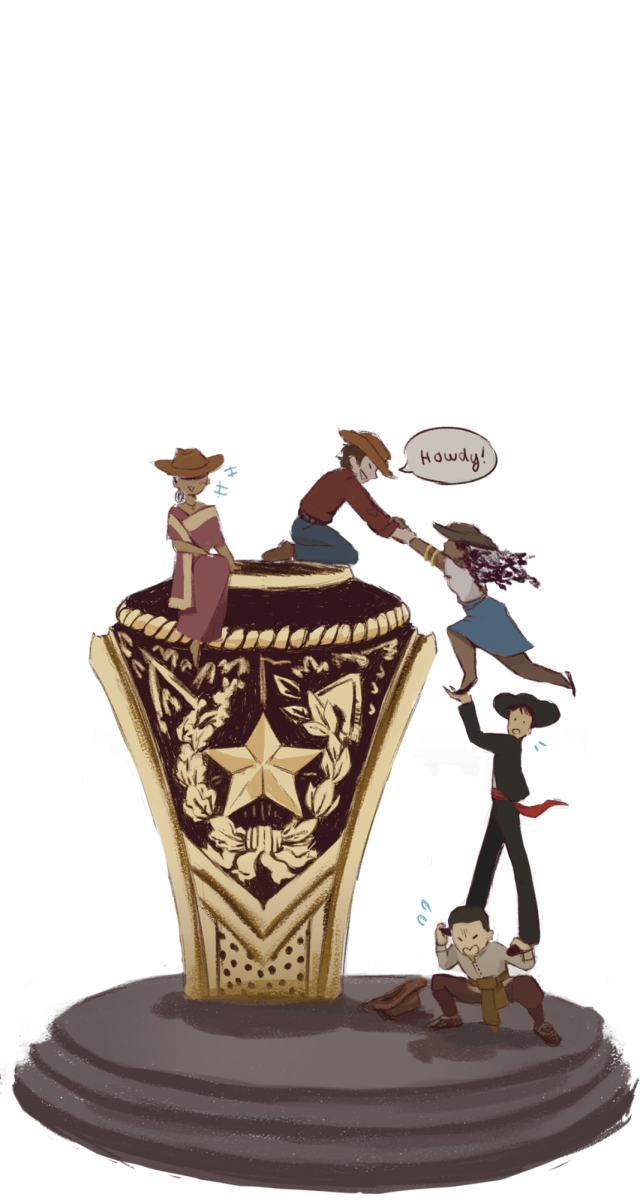America needs to make up its mind on marijuana.
Last fiscal year, Colorado generated almost $70 million in marijuana taxes, nearly doubling the amount of alcohol-generated federal taxes nationally — $42 million. This money was used to build schools, fund drug education and support youth programs.
Meanwhile, Texas spends $3.3 billion annually to maintain its prison infrastructure, of which non-violent offenders compose 48.5 percent. According to a report done by the American Civil Liberties Union, Texas taxpayers spent more than $250 million prosecuting marijuana laws in 2010.
As marijuana laws continue to divide the country and the federal government remains unflinching in their categorization of marijuana as a schedule-one drug — meaning it has no medical applications and is at a high risk for abuse — it remains important to note the effect of marijuana culture on non-legal states.
The information age has brought massively increased connectivity, and with it came the staple of sharing. Now there’s nothing inherently wrong with this, but when marijuana culture leaks into non-legal states, people can get the wrong idea.
It’s common in legal states for marijuana users to extract THC, the active compound in marijuana, for use in baking and cooking. Sites like Tumblr and Pinterest have space dedicated for marijuana-infused recipes, and multiple marijuana-related food blogs get regular circulation on popular media-sharing sites like Reddit and 9Gag.
When these posts reach mainstream, an implicit sentiment is expressed: what you are seeing is accepted. This marijuana-infused banana bread is delicious. You should try making this recipe.
The problem arises when citizens in non-legal states — say, Texas — don’t realize the increased legal ramifications involved with extracting drug compounds.
Enter Lewis Smithies, a local 23-year-old applied mathematics senior at A&M who was recently arrested and charged with manufacturing or delivery of an illegal substance, more than 4 grams but less than 400 grams, which is a first-degree felony punishable by up to 99 years in prison and a fine up to $10,000.
Compared to the punishment for sale of marijuana between 7 grams and 5 pounds, a state jail felony punishable by up to two years in prison and $10,000 in fines, it’s obvious how much more seriously extracts are viewed.
According to police, a batch of a dozen cookies made with marijuana-infused butter was confiscated from Smithies’ home alongside 6.73 ounces of marijuana. While his marijuana possession charge has the same fine as his manufacturing charge — $10,000 — the minimum sentence for possession up to five pounds is only 180 days. The minimum sentence on the cookies? Five years.
The implication here seems to be if a drug user has informed knowledge on the breakdown and application of his drug’s chemical makeup, he is immediately more of a threat. But what is inherently threatening about baking cookies?
This legal schism can’t last forever. As long as America remains on-the-fence about the prospect of legalizing marijuana, there will be countless lives lost to both the prison industrial complex and the black market. My only question is, why pay for it when we can profit from it?
When the marijuana cookie crumbles
January 25, 2016
0
Donate to The Battalion
Your donation will support the student journalists of Texas A&M University - College Station. Your contribution will allow us to purchase equipment and cover our annual website hosting costs.








